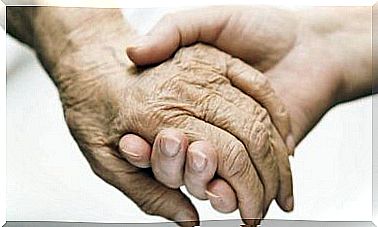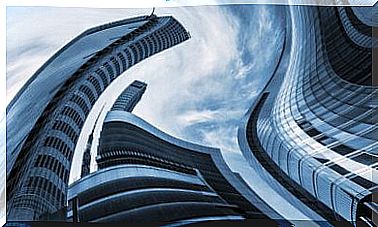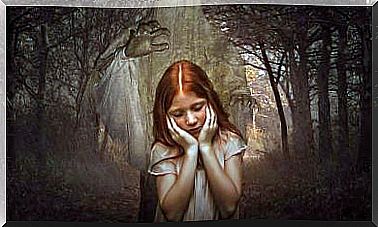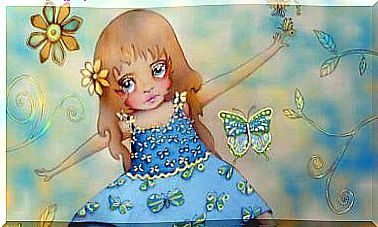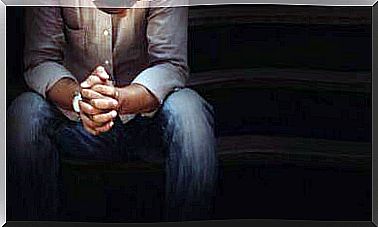Ego And Buddhism, What Is Their Relationship?
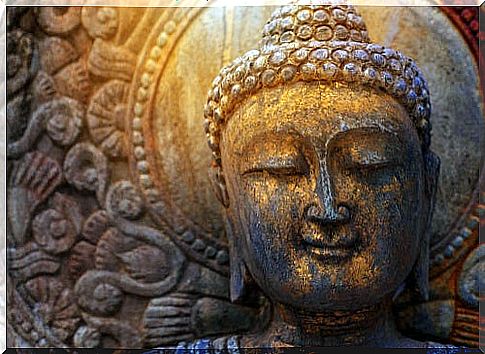
Ego and Buddhism are two inseparable terms. Whoever wants to get into Buddhism, one of the first topics they will tackle will be the ego. Whoever wants to delve into the ego, one of the deepest philosophical and psychological currents that you will find is Buddhism. What differentiates Buddhism from the most well-known religions with respect to the ego? The lack of its inherent existence. That is, from Buddhism we would not exist as we seem to exist. Interesting, right?
It could be assured that a great deal of Buddhist knowledge is focused on dethroning the ego from its position as king. There is a belief that the ego must be destroyed, however this is not entirely true.
The ego right now occupies a central position that controls and dominates our life. Buddhism tells us to put him in the position of minister or counselor. It is indisputable that we have a name, some beliefs, some customs… but if the ego dominates us, we will make of it a fixed identity. However, if we place it in the right position, we will be more free from conditioning, and therefore happier.
What is the ego?
From the moment we are born, our ego begins to take shape. Everything that we are and everything with which we identify forms our ego. Our nationality, name, belonging to different groups, beliefs and others are forming our identity. We accumulate all this information thanks to our memory and we make it our I. However, Buddhism tells us that this is not quite so.
According to Buddhism, the ego is the misconception of “I” as a self-existent entity. It is the idea of the inherent nature of the ego. The vision of “I” held by a mind that has not understood the concept of emptiness. What is emptiness? The inherent lack of existence of all phenomena.
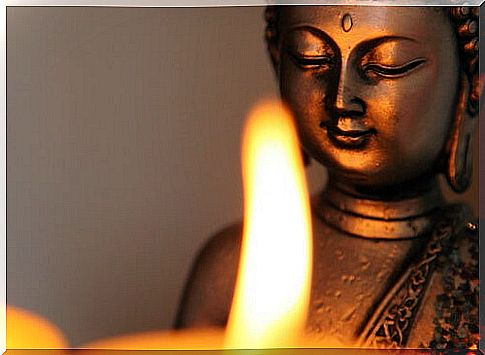
As Zen Buddhist master Linji related to his disciples: “My friends, make no mistake. All phenomena, whether worldly or supermundane, have no nature of their own. They are all unborn and therefore are mere designations, empty names. The expression “mere disignation” is, by itself, empty. Why do you take the name for the truth? If you do, are you wrong? ” .
It is possible that, if you are reading the concept of emptiness for the first time, it will be a bit complex to understand. Investigating the relationship between ego and Buddhism is an adventure that invites us to discover new terms and to change or clarify a bit the meaning of some that we already know. So let’s look to the ego to better understand these two concepts.
Looking for the ego: where is it? who I am?
- Is it in my name ? The answer is no. He could call me one way or another and it would have no influence on my way of being.
- Is it in my nationality? Either. He could have been born in one country or another.
- Is it in my thoughts? Here we enter swampy land. Many affirm that we are what we think because action arises from thoughts. However, today I can think of one thing and tomorrow another. Therefore, a thought may be more or less durable, but I am not that thought. How many times have we changed our mind? How many times have we thought that we are of little value, but our environment makes us see and believe the opposite?
- Is it in my actions? We do not always carry out the same actions. We can make mistakes and learn. We can repeat the same action over and over, but we have the potential to change our behavior. So there is no inherent action that defines us because it is also variable.
- Is it in my culture or society? I could have touched one culture or another. It is random. In addition, despite our culture we also have our way of being, our own way of thinking. When we travel, read, meditate, study … a change can occur in us that changes our social and cultural conditioning.
- Is it in my body? In what part of my body is the ego? Am I my body? If one day I have an accident and lose my legs, am I still me? In principle yes, but without legs. The ego is not supposed to vary even if it has no legs. So it is not in my body either.
- So where is my ego? Who I am?
Ego and attachment
As the Indian sage Shantideva expressed in the book Bodhisatvacharyavatara : “ When ordinary beings perceive phenomena, they consider them as real and not as illusory. This is what meditators and ordinary people disagree about . ” Thus, little by little we approach the most exact concept of Emptiness and Ego.
If we look at a table, we can think: “it is a table”. And here two levels of analysis come into play: relative level and absolute level. At a relative level we can say that yes, we have a table in front of us. At the absolute level, the discourse changes. If we look closely at the table, we can begin to break it down: four legs holding a board. If we disassemble the table, where is the table? There is no table. If we put the pieces back together, in theory, we have the table again.
This example shows that the set of four legs and a tabletop placed and embedded in a specific position is given the identity of a table. But they are still four legs and a board. And this simple example is applicable to the ego. When we perceive ourselves in a static and invariable way, we cling to our Ego. Or what is the same, we become attached to it. Ego and attachment go hand in hand. “I am like that”, we hear many times. It is nothing more than a statement about the low awareness of change that we all have.
When we become attached to the ego, our iron identity is born with little possibility of change. However, everything changes. When we free the mind from a static identity we are open to change and external circumstances. In this way, the intensity of our suffering goes down.

Ego, selfishness and self-centeredness
Another important aspect is that egoism and self-centeredness are born from the ego. By perceiving the world from our static Ego, we want everything that happens to fit our expectations, with the ideas we have of what should happen. ” I am like that and things should be as I think they should be . ” From the ego comes egocentricity. That is, everything must be as I think it should be. If something is different from my expectations, I suffer, I get angry, anger appears, etc. And egoism also arises, that is, in our mental map we become the Sun, thinking about what surrounds us as elements revolving around us.
As the psychotherapist, sociologist and theologian Enrique Martínez Lozano relates : “The vine and the branches, the tree and the branch, are they one or two? A branch can rightly say: “I am a branch”, and also: “I am a tree” : They are neither one nor two; they are “not-two” . It also postulates that “given the mind’s inability to understand non-two, if one wants to access non-duality, it is necessary to silence the mind, moving from” thought to attention. ” It is appreciated then that the “separation is only a mental creation”, and that there is nothing separate from nothing “ .
What does Martínez Lozano want to tell us? That the ego perceives everything separately: “I and the rest.” When in reality, there is no observer, action of observing, or observed object. Rather, everything is consciousness, but due to our thoughts we would contaminate our perception of reality.
In this way, due to all our thoughts and conditioning, we perceive the world from an Ego that we have been creating little by little. But it is an artificial Ego. An ego that does not exist as such, but forms a set of many aspects and that all of them are also changeable.
Ego and Buddhism: Final Reflection
Antonio Blay expressed: “ There is only one Reality. But we do not live it directly, but through the mind, and the mind divides it: when it sees it within, it calls it “I”; when he sees it outside, he calls it “world”; and when he sees her above, he calls her “God . ” Given this, Martínez Lozano gives us a clue: “Try to ‘release the constriction’ that has led you to lock yourself in (reduce yourself to) your mind. What are you when, instead of thinking about yourself, you simply take care of yourself? Your self is born from the mind; silence the mind and you will notice how the self dissolves; it was just a way . “
Ego and Buddhism, without a doubt, are two concepts that go hand in hand. If we say to go deeper into it, we will realize a new horizon in our lives. In a new way of relating to ourselves and to others. Thus, we talk about a path to know in a different, new and enriching way.
